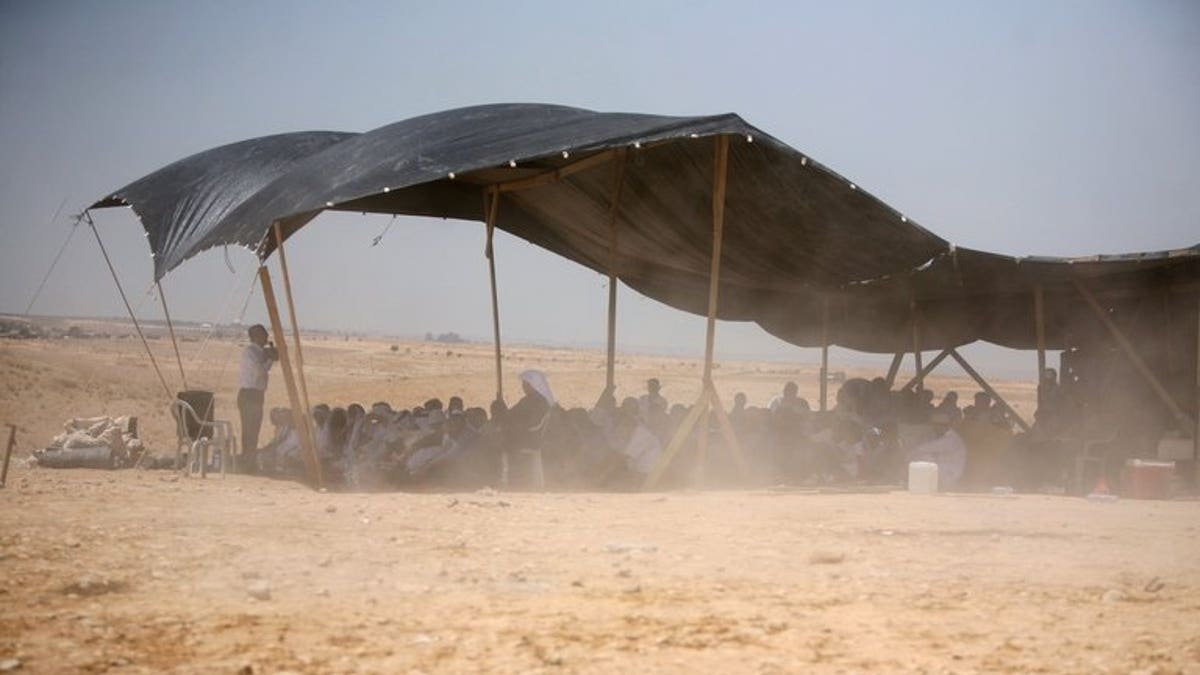
Bedouins attend Friday prayer under a tent in the Al-Araqib village located between Beersheba and Rahat in the Israeli Negev desert on May 14, 2010. Israeli police said they detained 15 Bedouin as hundreds of the tribesmen and women marched in the city of Beersheba to protest a government plan to resettle them. (AFP/File)
JERUSALEM (AFP) – Israeli police said they detained 15 Bedouin as hundreds of the tribesmen and women marched Monday in the city of Beersheba to protest a government plan to resettle them.
The Higher Arab Monitoring Committee, which represents Arab communities in Israel, had called for a day of "angry strikes" including demonstrations in 15 cities to denounce the plan.
Police spokeswoman Luba Samri said about 800 people took part in the main demonstration in Beersheeba, while Arab Israeli MP Jamal Zahalka said more than 1,000 attended.
"We called for a peaceful protest in which more than 1,000 people took part but the police used force. They tried to beat a girl with clubs but when I tried to protect her they beat me up as well," Zahalka told AFP.
But Samri told AFP that "the protesters attacked policemen and three of them were slightly injured".
She said 15 protesters were detained following the clashes.
Organisers said the overall number of protesters who took to the streets in Beersheeba, the southern Negev desert region, Galilee in the north and Jaffa near Tel Aviv could have been in the thousands.
The resettlement plan was approved by the government in January and by the parliament in a first reading in June. Two more votes are expected.
The plan call for the relocation of 30,000-40,000 Bedouin, the demolition of about 40 villages and the confiscation of more than 700,000 dunums (70,000 hectares) of land in the Negev.
The government has said it would "as much as possible" grant legal status to Negev villages that are currently unrecognised by the authorities if they met a minimum population criteria.
But those criteria have never been stated.
A cabinet statement has said "most" residents -- who do not currently receive government or municipal services -- would be able to continue living in their homes after the villages are granted legal status.
There are about 260,000 Bedouin in Israel, mostly living in and around the Negev in the arid south.
More than half live in unrecognised villages without utilities and many also live in extreme poverty.
